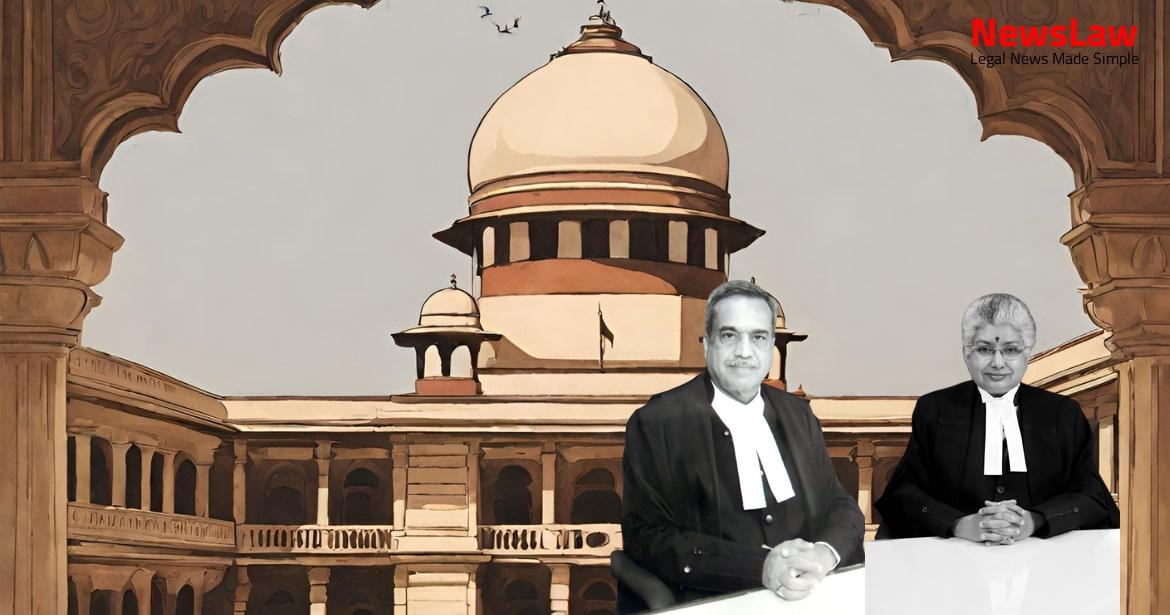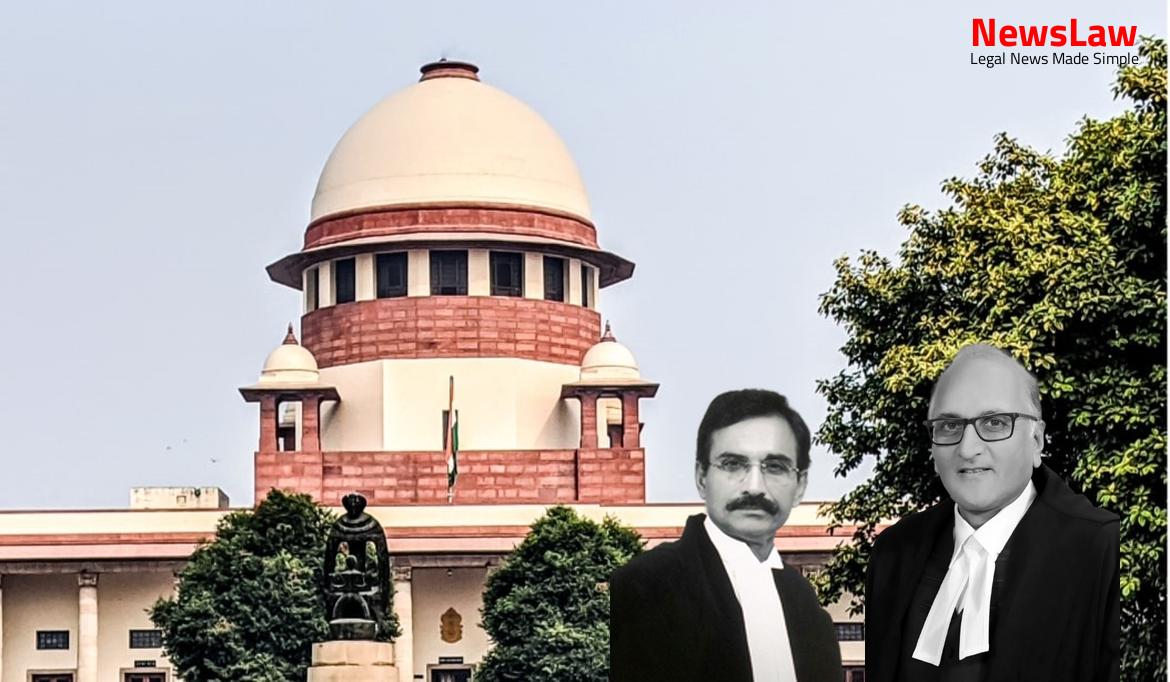The case emphasizes the court’s legal analysis regarding the duty of disclosure in insurance contracts. The focus is on the fundamental aspect of full disclosure by the insured to the insurer at the time of making proposals. The court highlighted the significance of accurate and specific answers in proposal forms to avoid ambiguity. The duty of utmost good faith, contra proferentem rule, and the insurer’s right to assess risks based on disclosed information were key aspects of the legal analysis.
Facts
- The appellant felt weak upon arrival at San Francisco airport and was admitted to the SFO Medical Centre.
- Appellant underwent angioplasty and had three stents inserted at the Mills Peninsula Medical Centre.
- Appellant’s son-in-law contacted M/s Corris International for emergency assistance under the mediclaim policy.
- Respondent No.2 repudiated the claim due to the history of hyperlipidaemia and diabetes as pre-existing conditions.
- Appellant protested against the repudiation and requested priority settlement as medical centers pressed for payment.
- The appellant’s claim was further disputed due to non-disclosure of pre-existing conditions despite medical examinations.
- The Commission dismissed the complaint citing breach of duty of disclosure and non-disclosure of relevant health conditions.
- Concealment or non-disclosure of material facts regarding pre-existing heart ailment was cited as a valid ground for repudiation of the insurance claim by the respondent – Insurer.
Also Read: Court’s Legal Analysis on Specific Performance in Tribal Land Transfer Case
Arguments
- Appellant’s senior counsel argued that the repudiation of the insurance policy based on the ground of suppression of pre-existing disease was erroneous.
- Insurance company needed to prove specific points to repudiate the policy related to the appellant’s heart attack and pre-existing conditions.
- The insurer failed to establish that the heart attack was caused by diabetes mellitus-type II and hyperlipidaemia.
- Appellant had disclosed his diabetic condition and the discharge summary did not specifically mention hyperlipidaemia.
- Insurer’s evidence only stated that appellant was suffering from diabetes and hyperlipidaemia with no concrete proof linking these to the heart attack.
- Appellant argued that the proposal form was vague, and failure to fill in all queries cannot be termed as suppression or misdeclaration.
- Insurance policy terms should favor the insured, and exemption clauses in insurance contracts should be construed in favor of the insured.
- The respondent insurer supported the repudiation of the policy and dismissal of the complaint by the Commission based on non-disclosure of material facts in the proposal form by the appellant insured.
- The appellant did not disclose his hyperlipidaemia condition in the proposal form, which may have resulted in the insurer not issuing the mediclaim policy to him.
- The respondent argued that non-disclosure of past medical history in the proposal form was sufficient reason to repudiate the policy.
- The Commission’s decision to dismiss the complaint was considered justified.
- The policy contained a clause stating that any claims arising from existing diseases not declared in the proposal form would be excluded from the policy’s scope.
- It was emphasized that completion of the proposal form with all material facts was essential, failure to do so could invalidate the policy.
- An Overseas Mediclaim Policy-B was issued to the appellant by the respondent insurer, with no recommendation for a stress test by the doctor.
Also Read: Clarification on Reservation for Scheduled Tribes in Union Territory
Analysis
- The duty of disclosure by the insured is a fundamental aspect of entering into a contract of insurance.
- Material facts must be disclosed by the insured to the insurer at the time of making the proposal.
- The duty of good faith and full disclosure applies throughout negotiations for an insurance contract.
- Any inaccurate or misleading answers in the proposal form can lead to the insurer repudiating their liability.
- The insurer must inform the insured about the terms and conditions of the policy and adhere strictly to the statements in the proposal form.
- Material facts are determined by the circumstances existing at the time of disclosure, not by events that occur subsequently.
- Specific queries in a proposal form require specific answers from the insured.
- The Contra Proferentem Rule, which interprets contracts against the drafter, may apply in insurance contracts.
- The insurer must assess the likely risks based on the disclosed health conditions of the insured before issuing the policy.
- The insurer’s right to seek details about the proposer’s medical condition includes getting the proposer examined by designated doctors.
- Insurance contracts require full disclosure of all material facts by the insured.
- The legal maxim of uberrimae fidei expresses the duty of utmost good faith in insurance contracts.
- Non-disclosure of material facts entitles the insurer to avoid the contract if it induced the contract on certain terms.
- Lord Mansfield in Carter v. Boehm highlighted the importance of disclosure in insurance contracts.
- In LIC of India v. Smt. G.M. Channabasemma, the burden of proving false representations by the insured is on the insurer post-issuance of the policy.
- The contra proferentem rule applies when there is ambiguity in the contract, resolving it in favor of the insured.
- Courts focus on whether a prudent insurer would be influenced by the undisclosed information.
- MacGillivray on Insurance Law elaborates on the duty of full disclosure and the contra proferentem rule.
- The duty of disclosure is essential to prevent ambiguity and ensure the insurer’s assessment of the risk is accurate.
- Cases like Delhi Development Authority v. Durga Chand Kaushish emphasize the importance of clarity and specificity in insurance contracts.
- A Proposal Form is a form filled by the proposer for insurance to provide all necessary information required by the insurer concerning the risk.
- The purpose of the Proposal Form is to assist the insurer in deciding whether to accept or decline the risk and to determine the terms, rates, and conditions of the coverage.
- The term ‘material’ in this context includes important, essential, and relevant information that is crucial for underwriting the risk by the insurer.
- The Commission was incorrect in dismissing the appellant’s complaint.
- The appellant is entitled to be indemnified under the policy.
Also Read: Analysis of Tax Exemption for Enemy Properties
Decision
- The respondents are directed to indemnify the appellant for the expenses incurred towards his medical treatment.
- The indemnification must be done within one month of receiving a copy of the judgment.
- Interest at the rate of 6% per annum will be applicable from the date of filing the claim petition till realization.
Case Title: MANMOHAN NANDA Vs. UNITED INDIA INSURANCE CO. LTD. . (2021 INSC 826)
Case Number: C.A. No.-008386-008386 / 2015



